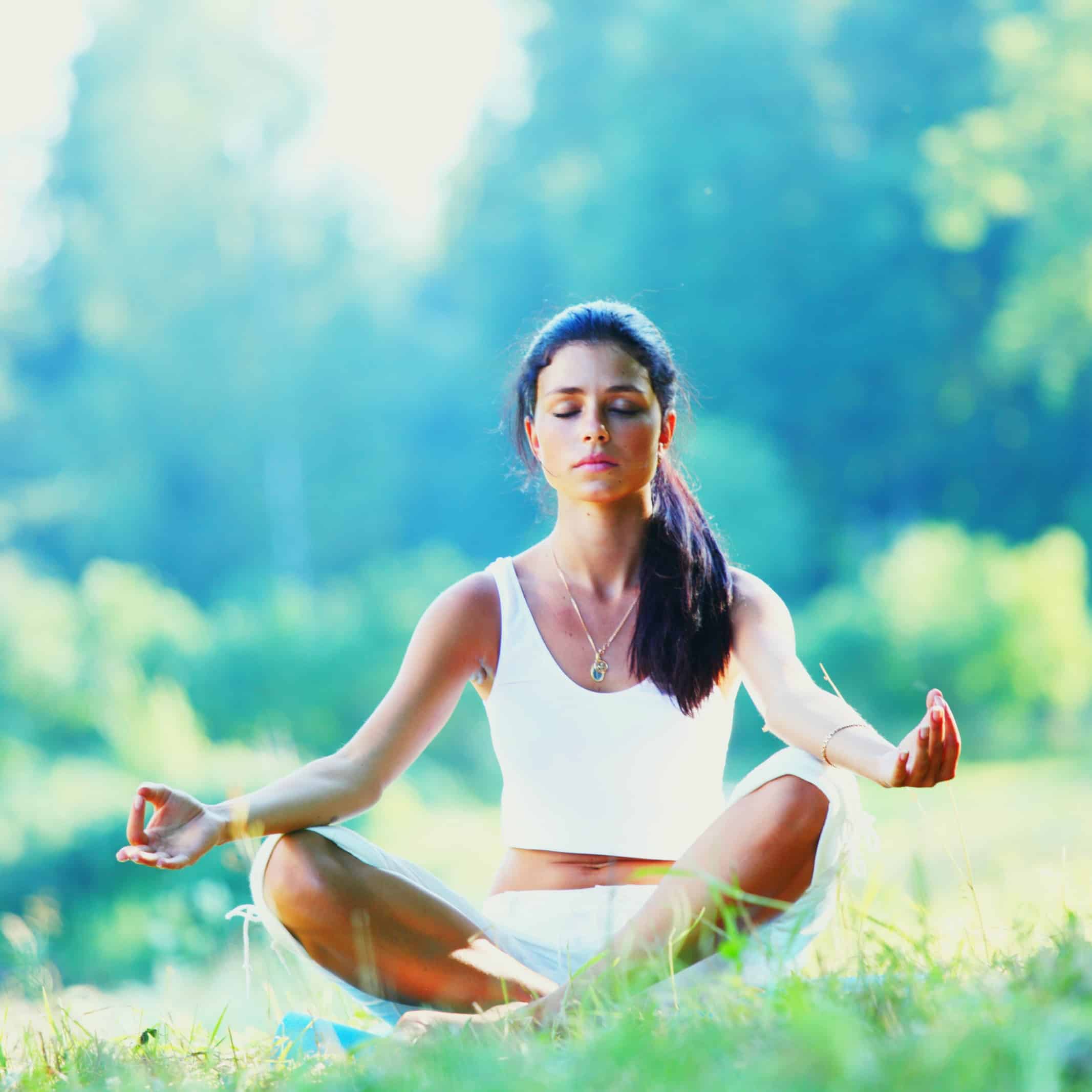Yoga has many benefits that you may not be aware of. Studies show that it helps to reduce anxiety and lower levels of cortisol stress hormones, and reducing levels of cortisol can help to decrease symptoms of depression. Yoga has also been shown to help decrease the risk factors for heart disease, and it has positive effects on melatonin that can help to alleviate some issues that contribute to sleep issues. But the primary physical benefit of yoga is helping you get and stay in shape while building balance and flexibility.
Meditation is an empowering tool that is worth adding to your self care repertoire to incorporate into your daily routine. It is a form of mind-body medicine that can be part of a healthy healing process. It is a simple and easily accessible tool to help keep the mind, body, and spirit in optimal health that trains your mind to focus and redirect your thoughts to reduce stress and anxiety among other things.
Meditation can help you learn how to control how you respond to stress in both body and mind to do so in a more positive manner rather than reacting negatively. It helps you to learn how to get your body to surpass your thoughts to calm your mind and body to bring the body back to balance. When the body is in this state it is able to heal and reduce physical and psychological stressors which may help to reduce stress on the immune system.
Stress is everywhere around us, it runs so unchecked that chronic stress contributes to the 6 leading causes of death in America due to stress promoting the body to stay in a constant fight or flight mode. Stressors and anxiety tend to be some of the primary causes of illness and chronic disease, remaining in that chronic state prevents the body from getting the proper time to rest, digest and focus on healing. Remaining in a perpetual fight or flight state has been directly correlated to ailments such as hypertension, heart disease, autoimmune disease, and other chronic diseases. In order for the body to heal it needs to be in a parasympathetic resting state which stress and anxiety prevents from happening.
Mediation can virtually be done anywhere, and it does not require any special equipment. A quick search online and you will be able to find plenty of classes to follow along with for every level, most for free. Some people meditate for 20 minutes at a time twice a day, some for an hour once a day, and some for 10 minutes when they wake up, there really is no limit, do what feels right for you and let the meditation experience guide you.
Once you have the basics down you may not even need to follow along with a class online. Unplugging may seem daunting to some, you may feel fidgety, or you may even think of a bunch of things at the same time. When these moments happen, take a moment and just breathe. Unplugging is important, there is no need to stay plugged in 24/7, studies even show this contributes to stress and anxiety. When practicing yoga and meditation keep in mind that practice makes permanence, and the more you practice these techniques the more permanent the mindful habits will become and the more feelings of calmness and relaxedness you will have to better enjoy less stress and anxiety.




